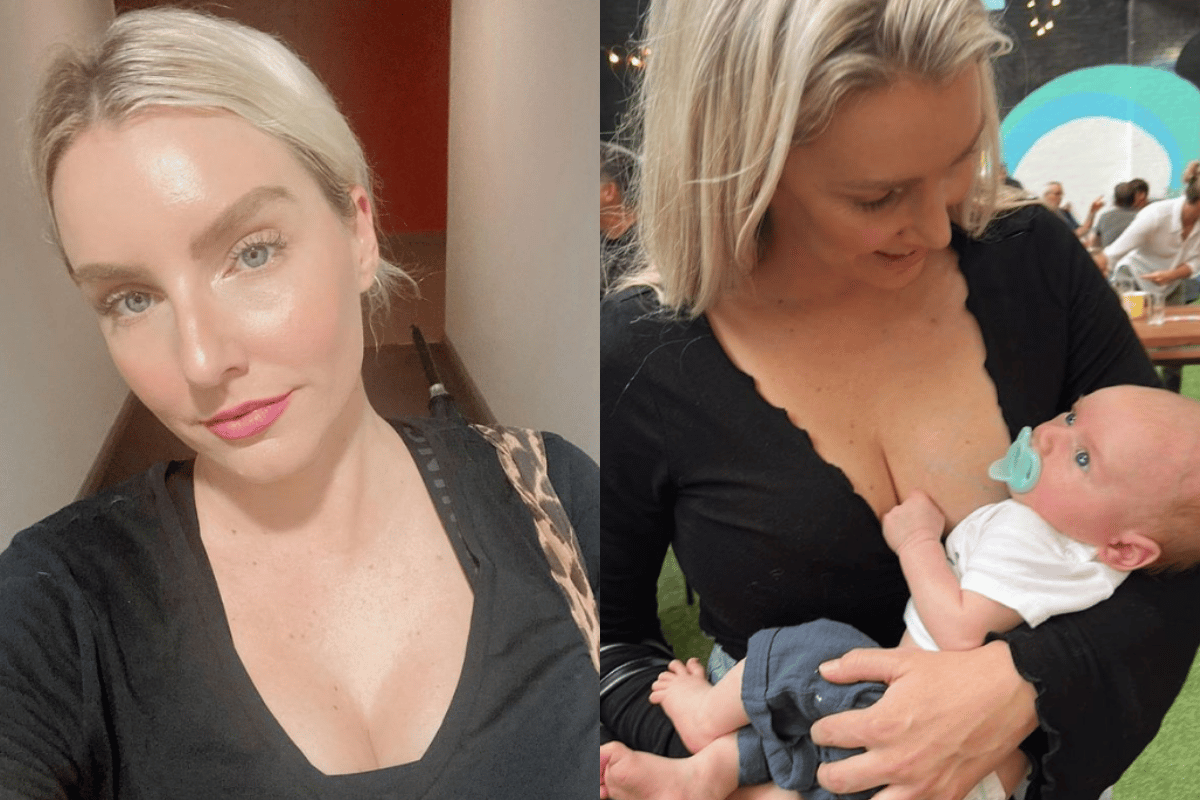
This post includes discussion of postpartum depression that may be distressing to some readers.
At the age of 15, Kelly McCarren first saw the signs of poor mental health.
As a teenager, Kelly's anger began to bubble towards the surface, and by year eight in high school, she had thrown a chair at her best friend in French class. Luckily, the chair didn't make contact with her friend.
"I felt things a lot more than what was normal. I used to go outside when I was having fights with my parents, and we had these poles that supported/held up the house – I would punch those poles. It really hurt my hands, but it was a way to release anger," Kelly reflected on No Filter.
Up until this point she didn't realise other kids weren't also doing things like this.
With strong recommendations from her parents to go and talk to a professional, Kelly saw a counsellor. And from this point on she understood what mental health looked like. It continued to ebb and flow throughout her life, through career milestones, graduations, relationship and friendship breakups – the lot.
Then postpartum depression hit.
And it escalated things to an entirely new level.
Watch Jess Eva talks about her postnatal depression on I'm A Celebrity... Get Me Out Of Here! Post continues below.

Top Comments